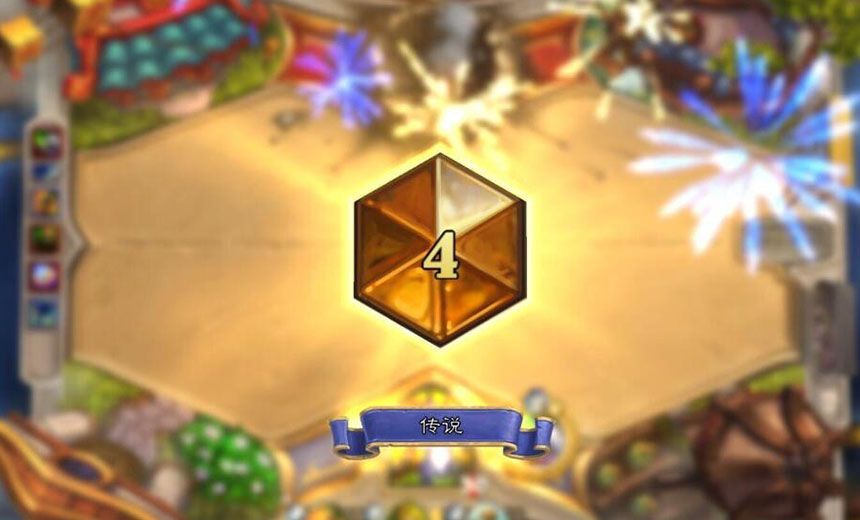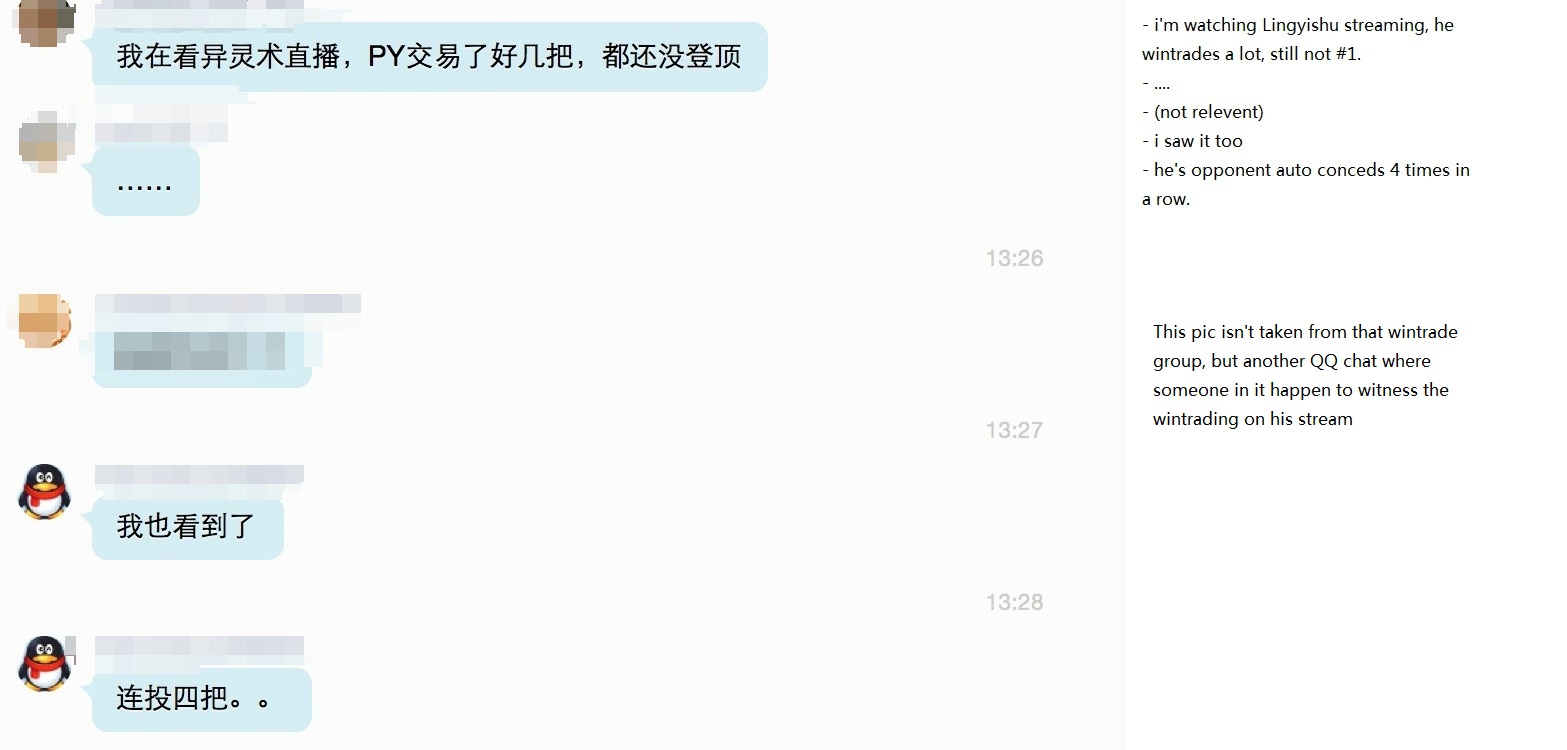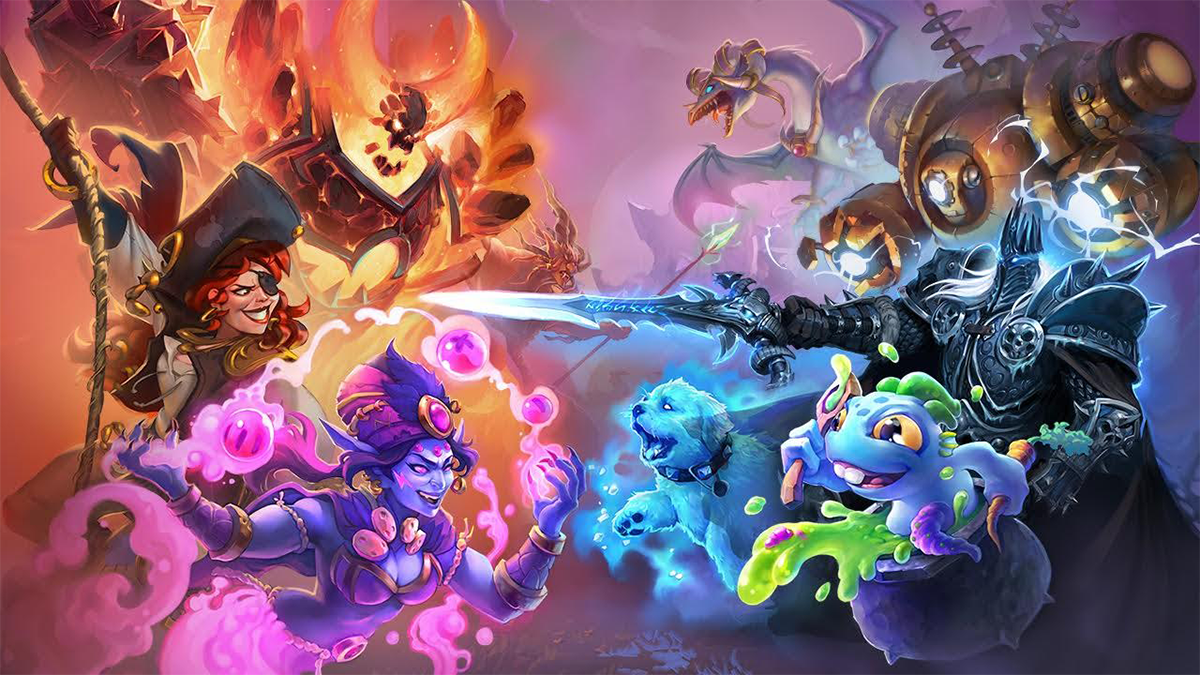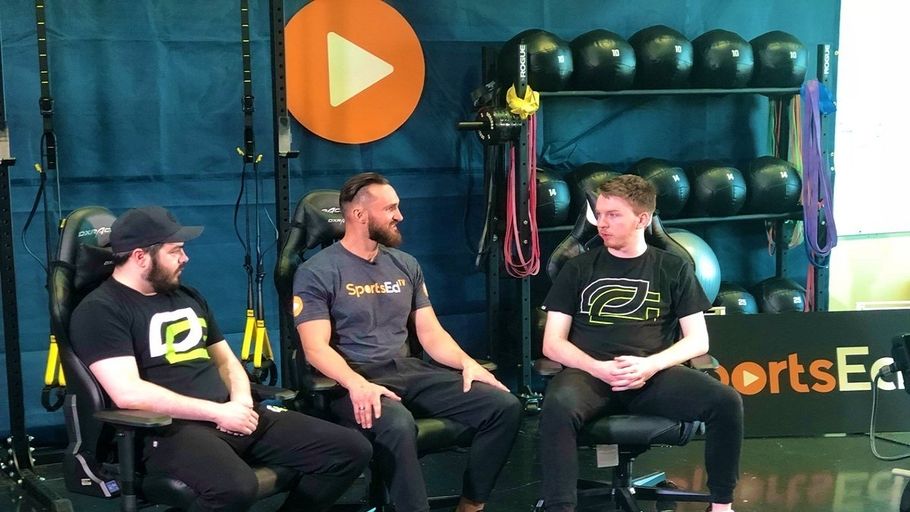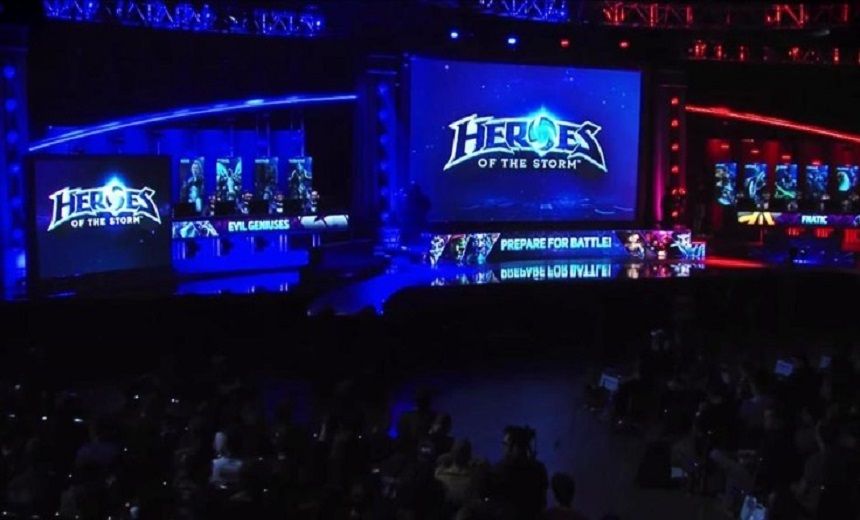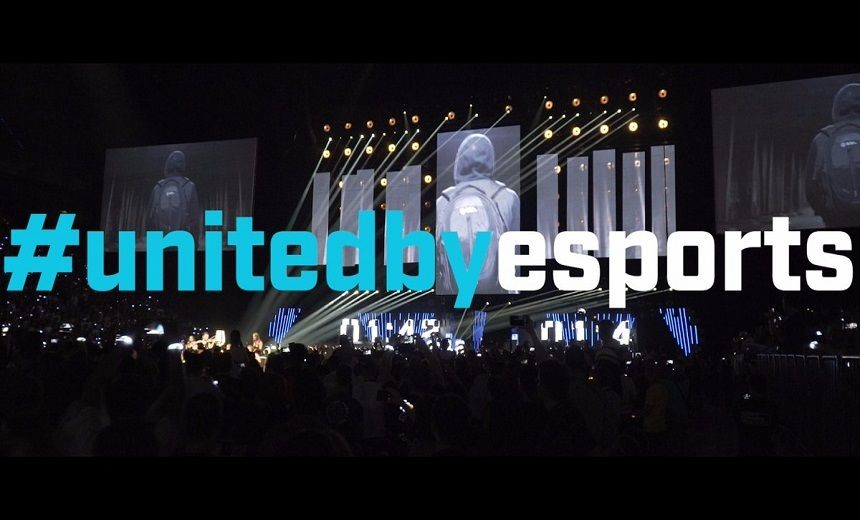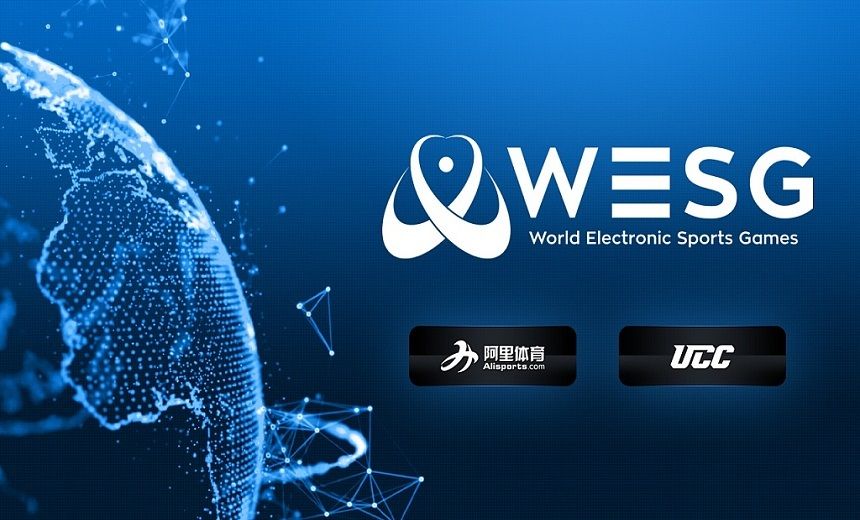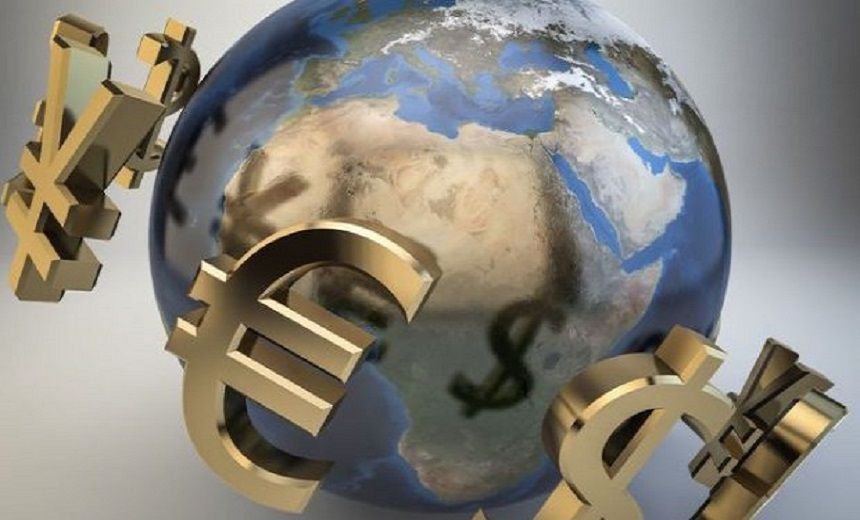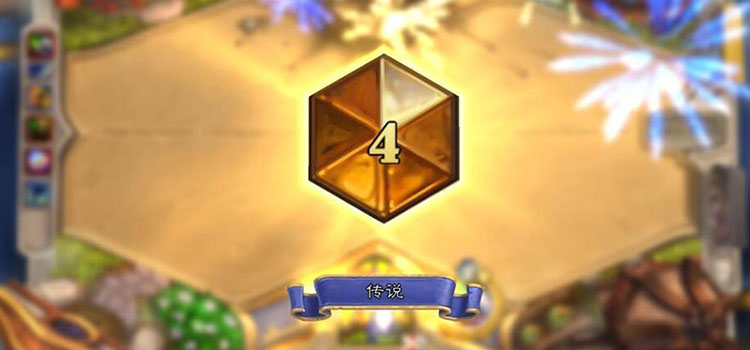
Chinese esports is a massive industry. Millions of people are engaged in the country’s competitive culture. Billions of dollars are poured into competitive gaming yearly, as MOBA games like League of Legends and Dota 2 have become the virtual playgrounds of those with deep pockets. In some ways, the scale to which certain disciplines are elevated is unmatched even by the original Mecca of esports South Korea.
Being different than its traditional esports counterparts, Hearthstone – Blizzard’s card game released officially in March 2014 – is not quite there yet but the interest towards the title is nonetheless massive. Although the Chinese scene is considered among the weakest in Hearthstone, companies like NetEase, Blizzard’s representatives on Chinese soil, are working hard to cultivate and nurture local talent. If the western landscape is defined by a sea of minor open cups with the occasional major LAN to spice things up, huge open offline tournaments with five-figure prize pools are common in China. It’s something the “foreigners” should be, and very likely are, envious of.
The glitz and glamour only get bigger as one moves up the tournament ladder. In 2014, the World Esports Championship (WEC) and World Cyber Arena (WCA) gave out unprecedented riches for a non-Blizzard tournament. In 2015, the NetEase CEO offered a Ferrari – yes, a slick high-end sports car becoming of a young millionaire – to whoever defeats the European players in China vs Europe Season 2. Think what you want, but when it comes to esports in that part of the world, size does matter.
Yet, for all its grandeur, Chinese Hearthstone is plagued by issues. In an interview from 2015, World Championship runner-up and a pillar of his community Xieyu “TiddlerCelestial” Wang spoke to GosuGamers about the struggles the pro players face on a daily basis. Even pedigree brands like Invictus Gaming, World Elite or TongFu treat Hearthstone as a second grade discipline and while they maintain an active card-slinging roster, the majority of the attention is devoted to the big money winners in the MOBA disciplines.
For all its grandeur, Chinese Hearthstone is plagued by issues.
The difficulty to make a living paired with the unparalleled size of the competition have become a hindrance big enough to stop careers in their infancy. It’s a slippery slope that leads to lack of motivation and ultimately lack of professionalism, something Tiddler addressed in a later interview for the Chinese website h.163.com. “China wouldn’t win another “versus” tournament,” he said, calling out his Hearthstone peers with his signature direct approach.
While these core problems are enough to cause an irreversible rotting process, there’s even more that the wide public isn’t really reading about. With the re-modelling of the Hearthstone Championship Tour to place even higher emphasis on ladder placement, a large group of players in China have taken to themselves to manipulate the standings through organized win-trading and pay-to-legend services.
If the connection between “win trading” and “competitive Hearthstone” rings a bell, that’s because it has already happened in the western scene. In 2014, American players Specialist and zRusher admitted to have organized win trading to climb the ladder. And if their actions had little impact over the scene back then, that wasn’t the case with Ole “Naiman” Batyrbekov and Dan “Alchemixt” Walton in the following year, who were two of total four western players banned from the 2015 World Championship circuit for win-trading. The incident involving Naiman and Alchemixt raised a handful of questions, the most important of which being how would Blizzard control the integrity of the competitive activity – the majority of which is happening online in anonymous bedrooms all over the world – if such manipulation occurred en masse, involving players nobody has heard of or seen before?
Case in point is the current win-trading culture in China. According to information, including chat logs, provided by GosuGamers sources, an organized group of at least 14 confirmed pro players and streamers are providing illegal services to whoever can benefit or is willing to pay for it. In reality, there are many more involved, spread across QQ Chat conversations, arranging such transactions every month. The reward is, of course, valuable. High ladder placements yield Hearthstone Championship Tour (HCT) points, which are used to determine who will make the next step to the Seasonal Championships, the tournaments that decide the seeds for the Blizzcon World Finals.
The group uses the phrase “RenMai”, originally meaning “Human Networks” in Chinese, as well as “Yan”, or “act” in English, to never explicitly reveal what they are doing. They do not limit themselves to ladder only either, and have organized themselves to compromise the integrity of the Gold Series Open, one of the most respected and high-paying Blizzard-ran cups in China.
Win-trading, or RenMai, is happening every day, everywhere, every minute.
Faced with a serious problem on their hands, Blizzard China have tried to take some measures. In Europe and the Americas, finishing in the top 100 of the ladder yields anything between five and 15 HCT points. To place the highest at the end of every month equals to winning a major LAN event with hundreds of players, a task only the very best in the world can accomplish on a regular basis. However, to disencourage the win-trading culture on the Chinese server, the points the high placing players can earn monthly is greatly reduced to mere 1-3. This is the equivalent of placing top four in one of the hundreds community cups happening in the west around the clock.
One name that constantly comes to the forefront in ties with this win-trading group is BaoQian (??#5501), a higher-up in said organization. BaoQian was banned in February from all Blizzard sanctioned tournaments until 31 December 2016 for win-trading in the January season. BaoQian has also been accused of changing his ID so he can participate in the Gold Series Guangzhou event on March 12-13. And hereby lays an integral part of the problem. BaoQian is only known by his nickname. He is not a pro-player associated with any team. His Battle.net account isn’t using his real identity. He might never play at a Blizzard sanctioned tournament but he’s more than capable of creating a new account and starting fresh, continuing his win-trading business.
As this article mentioned, though, BaoQian is just one of the cogs in a system which is also driven by players on various teams, including PanicToDeath, a team founded by former Celestial player Donten, and TongFu:
• FengFengFeng (???), Team TongFu: #11 in January, #27 in February
• BaiZe (??), participant of China Season Championship, #31 in Jan, #29 in Feb
• HeMa (?????), famous Hearthstone streamer, #11 in Feb
• ZhuGeiLiang (????????), top 8 in Gold Series Guangzhou
• LingShen (???????), Team PanicToDeath, #8 in Feb
• WangZi (???????), Team PanicToDeath, #40 in Feb
• XiaoPangZi (????????), Team PanicToDeath, #56 in Feb
• QiGai (???????), Team PanicToDeath, #69 in Feb
• SiQi (???????), Team PanicToDeath, #85 in Feb
• DaMeiRen (???), #50 in Jan, multiple violations of account sharing rules
• BadKid, #35 in Jan, #1 in Feb
• FuNianWeiLaiFuJun (??????), #34 in Jan
• YeZhuoYan (???), #39 in Jan, #17 in Feb, participated in Gold Series but having another person play for him in his name
Below are screenshots depicting members of the group engage in win-trading for ladder and tournament benefits.
1. Evidence of win-trading happening prior to the end of the February season
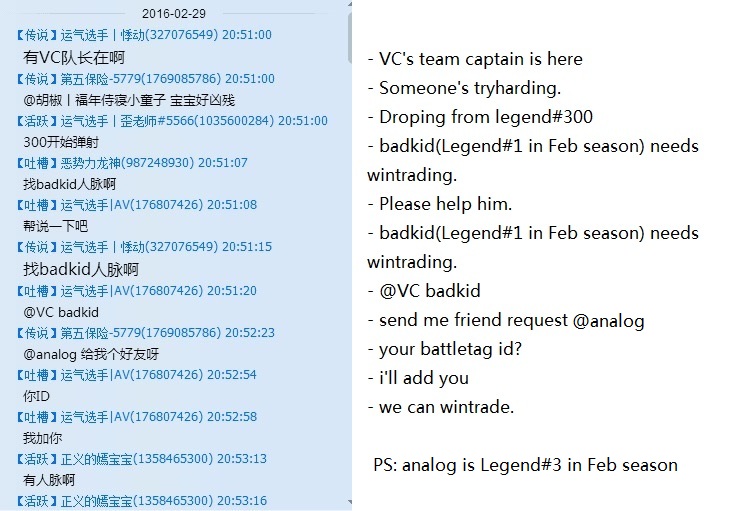
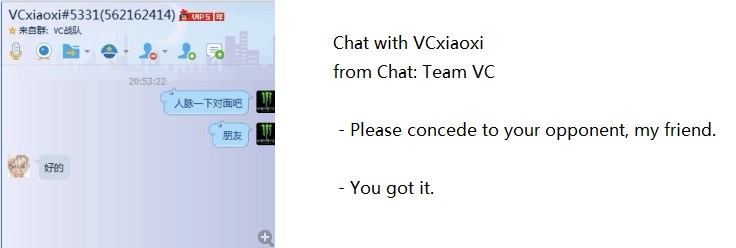
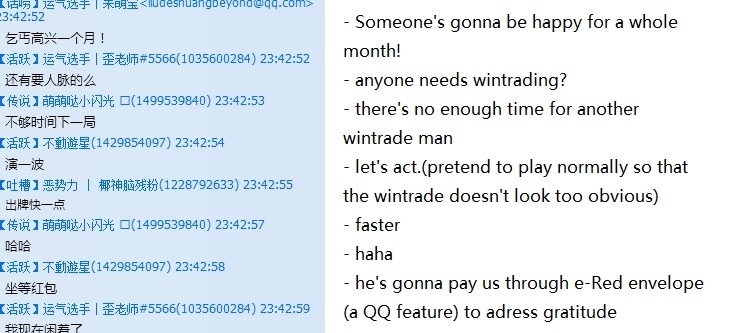
"Someone" in the conversation above refers to QiGai or ??
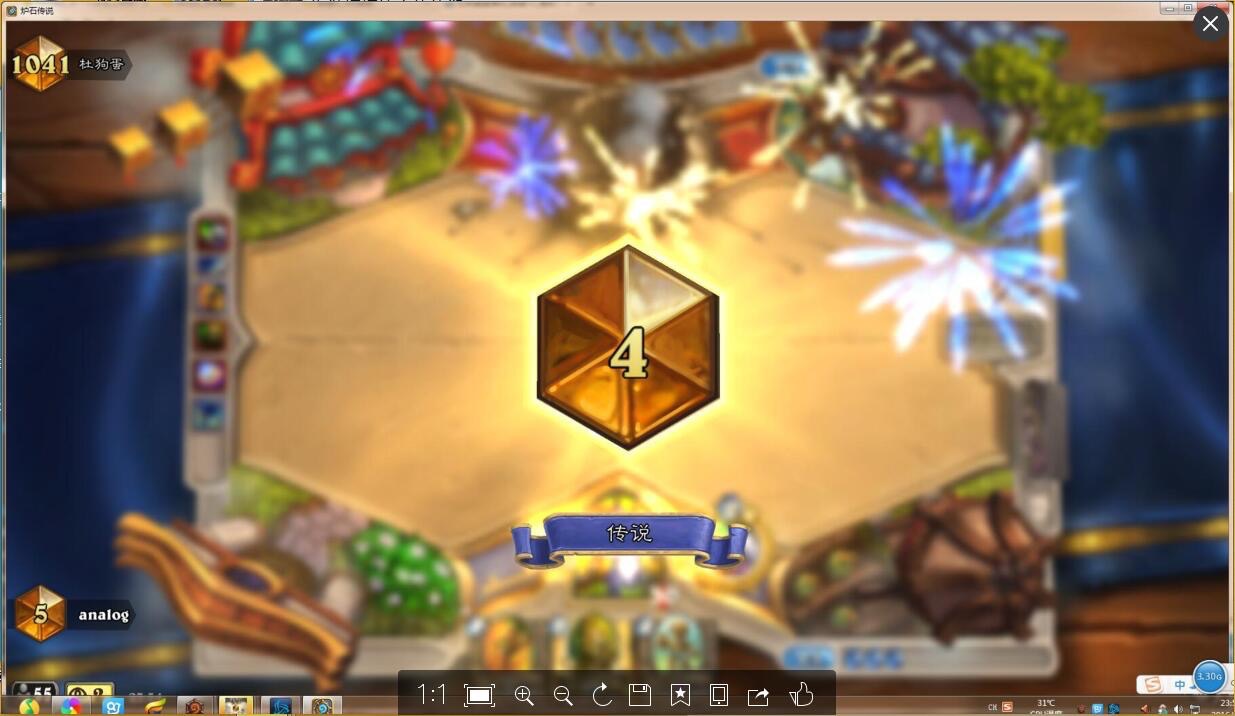
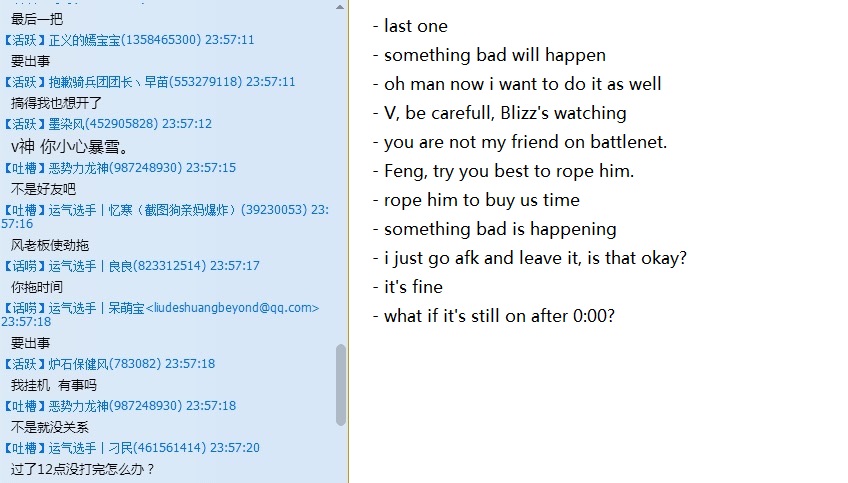
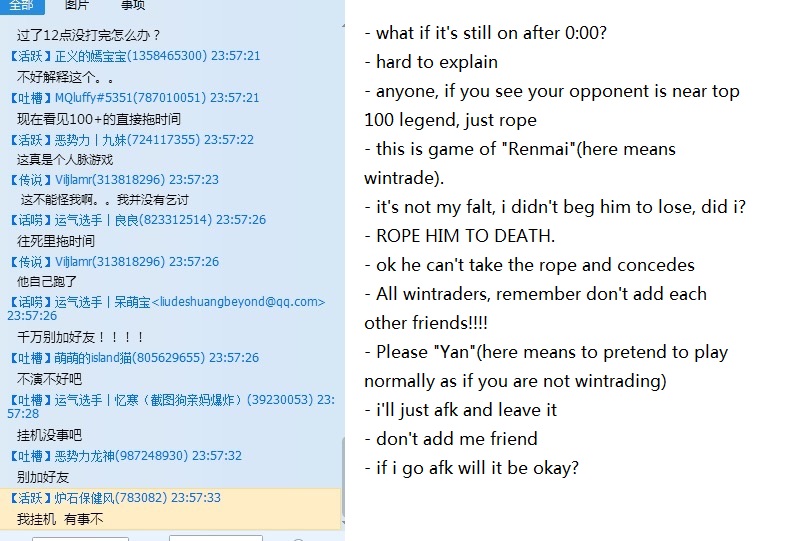
2. Matchfixing / buying entry during Gold Series Open
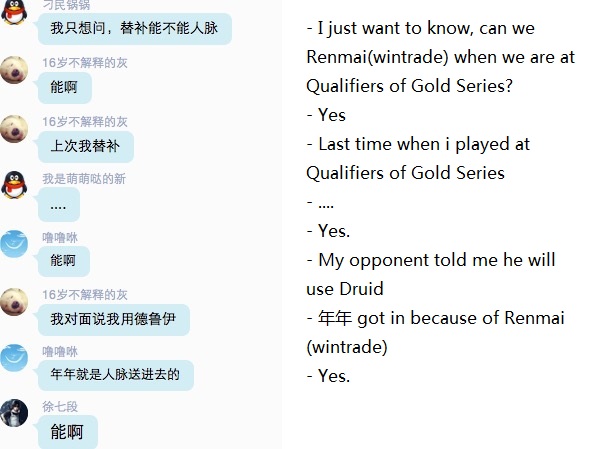
According to a second translator, the involved parties are discussing buying an entry into the Gold Series qualifier instead of following the normal first come, first serve procedure
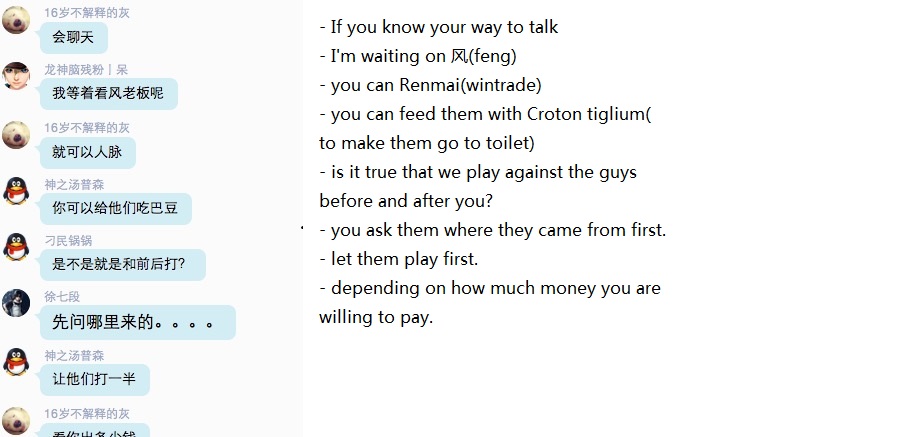
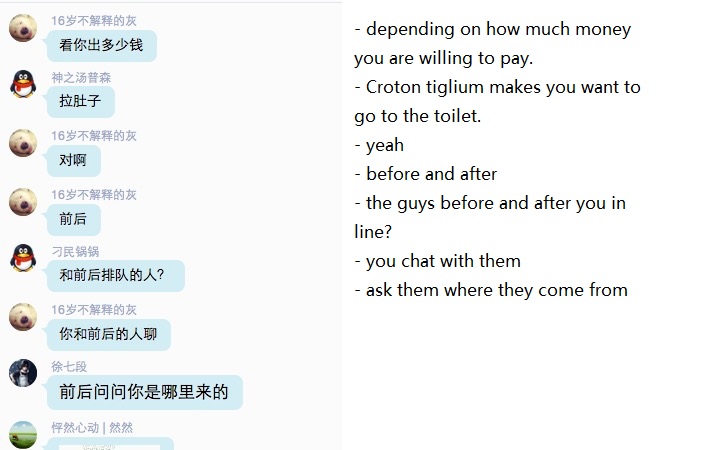
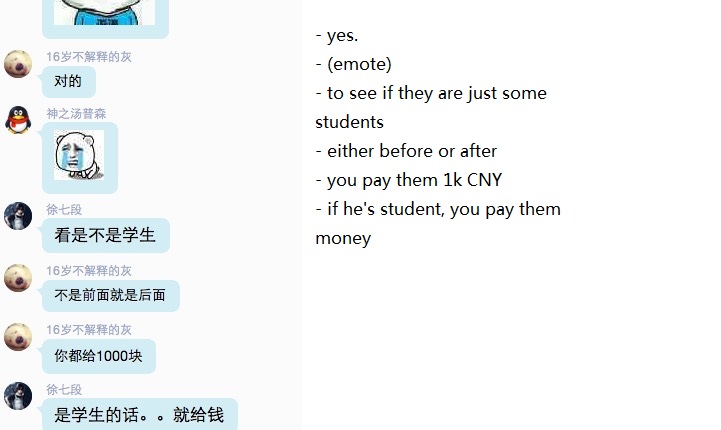
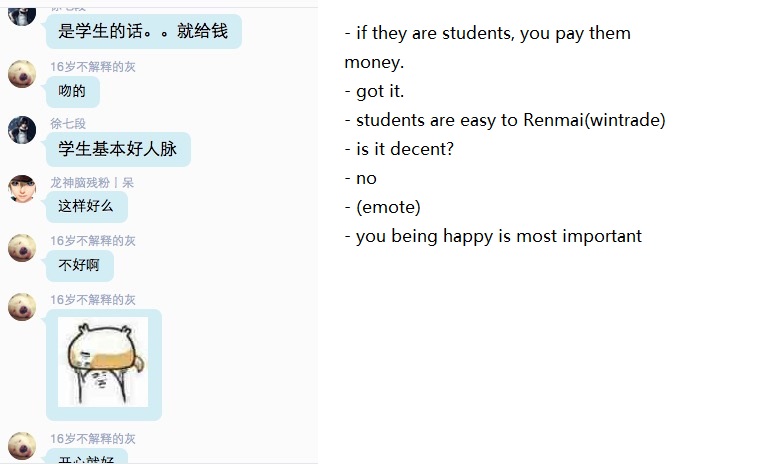
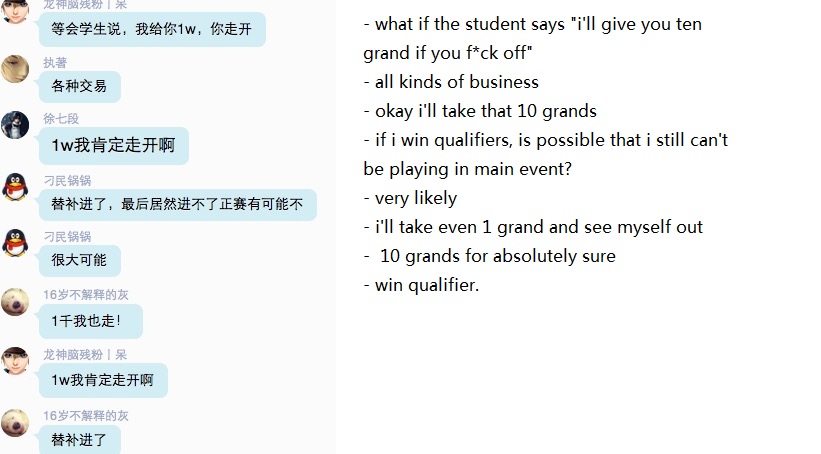
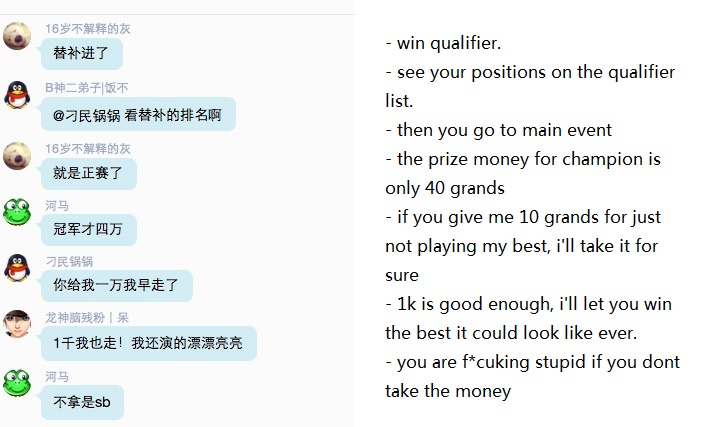
3. ??? (Lingyishu) win-trading to reach #1 legend on stream
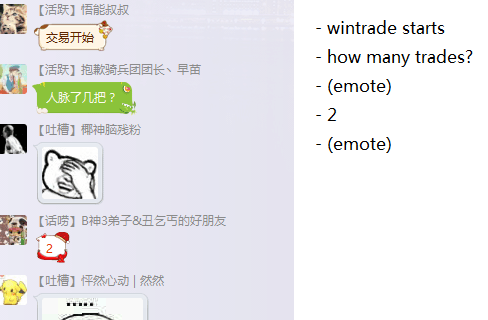
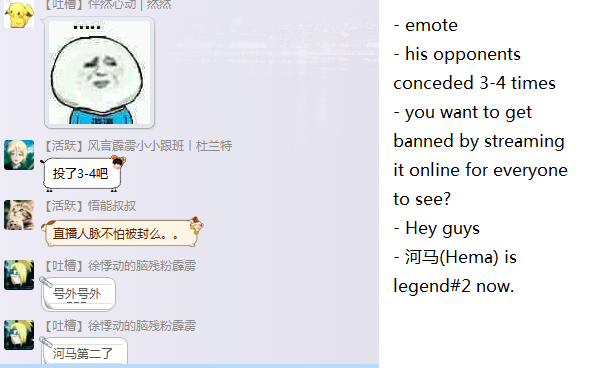
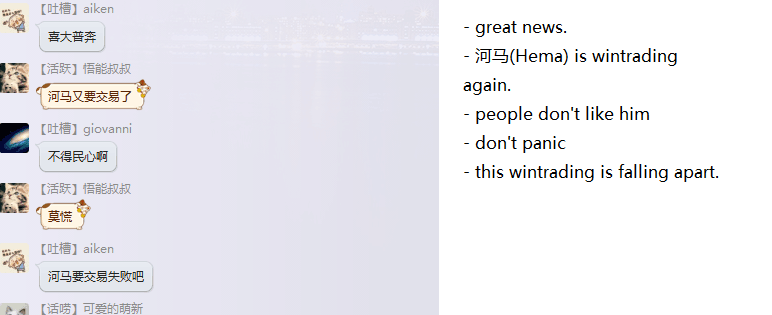

4. Evidence of FengFengFeng from TongFu engage in win trading
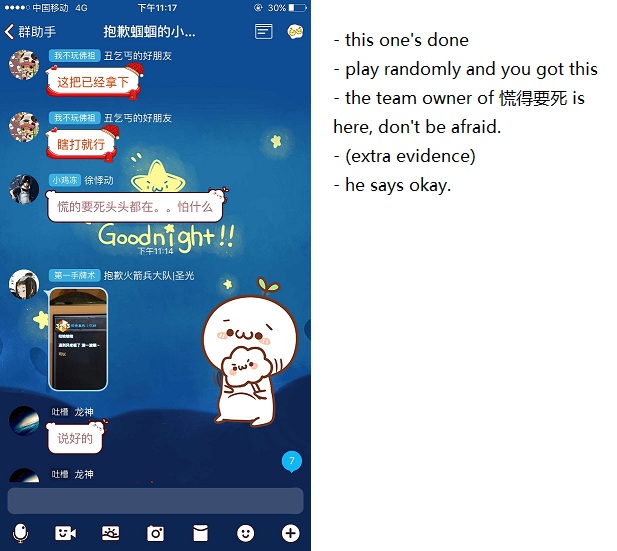
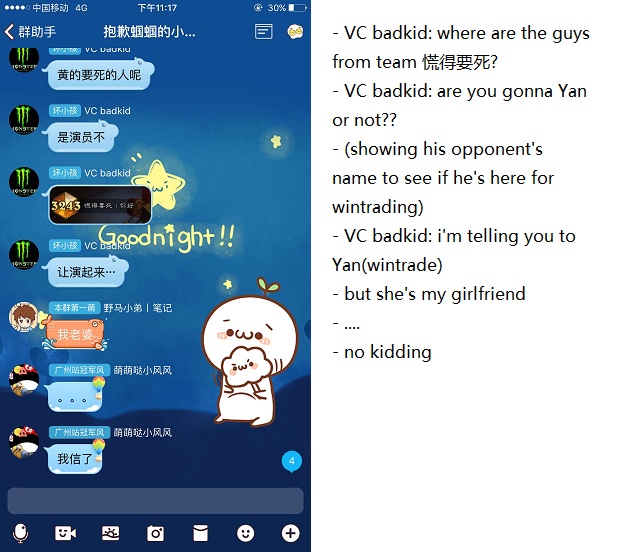
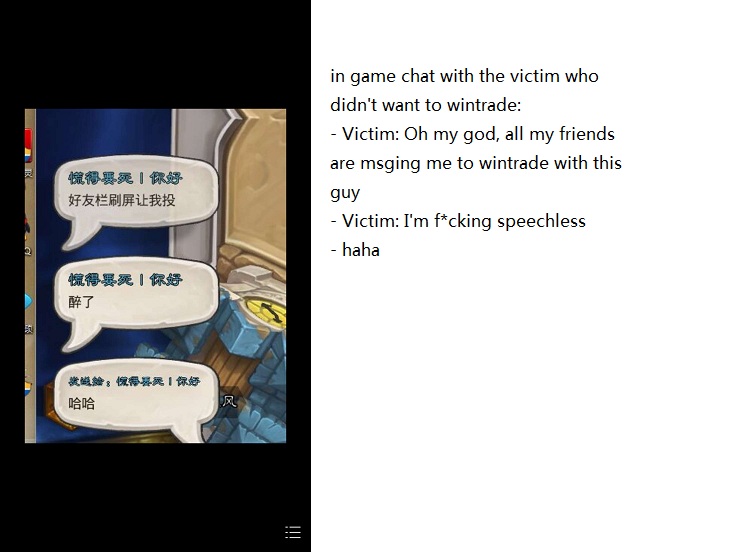
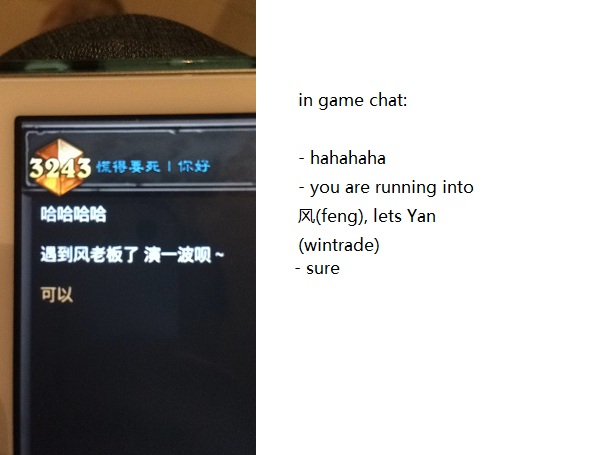
This is more than just a peak into how these win-traders work, but the cost of the services as well. Paying a player to RenMai, especially if he’s a student, to throw a game in the Gold Series qualifier is “easy”, only costing 1,000 CNY or about $155. To put this in perspective, the total prize pool of a Gold Series Open such as the recent Guangzhou stop is 107,000 CNY, or upwards of $17,000, half of which goes to the winner.
According to another anonymous source and a member of the RenMai group, boosting an account to legend comes much cheaper in comparison. Last year, this service cost 400 CNY or $60. Due to the massive influx of booster and the expansion of the business, the same service now costs almost half that prize. A skilled individual like himself can deliver about 20 a month, while an average player can do ten deals for that same period.
With their hands tied by the immense amount of resources a thorough investigation would cost, Blizzard have to come up with a different strategy.
The information that same source provides sheds more light on the cheating landscape in China. A lot of Chinese pro players are involved, he admits, and RenMai is happening “every day, everywhere, every minute”. Of the 30,000 Legend accounts on the Chinese server, only about 10,000 are real. The rest two thirds have been paid for.
“Everybody in Legend knows each other and knows who’s doing pay-to-legend and who isn’t.”
Although it would appear this is all happening while Blizzard and NetEase are looking elsewhere, this isn’t really the case. The RenMai group is well aware when they are being watched, but have developed techniques to go undetected and avoid punishment as long as possible. According to a source close to the situation, Blizzard have been aware of this issue for a long, long time and have tried to take proactive actions in the past. In 2014, a group of wintrade investigators which worked closely with Blizzard and NetEase, faced a lot of obstructions, including costs and human resource. Additionally, many of the names who were investigated were involved with major esports organizations and taking action upon them proved difficult.
The current measure to greatly devalue the ladder rewards is also just a partial solution which causes more problems than it solves. As offline tournaments still yield the normal amount of points a disbalance in the competitive climate in China and huge discrepancies between the different regions are created as a result. Still, with their hands tied by the immense amount of resources a thorough investigation would cost, Hearthstone’s developers have to come up with a different strategy. Investing money into organizing offline cups, which can be properly policed, instead of continuing the endless wintrading investigations is part of their plans to hopefully banish the malicious practice into irrelevance.

